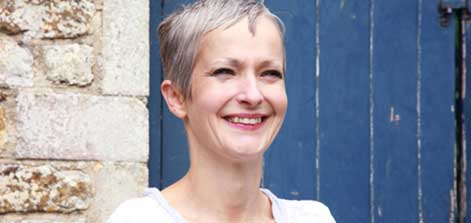Food can be so much more than just fuel sometimes, as nutritionist Jane Clarke well knows. As well as giving her account of how food (and her Great Aunt May), helped her through serious illness, Jane will be answering all your questions on food and nutrition, too.
Add yours to the thread below by 12 noon on 22 February and we'll send them across for her to answer. You can find out more about Jane on her website, www.nourishbyjaneclarke.com/, which she created in order to help people who are ill, and their carers, find both enjoyment and nourishment in food again.
Jane Clarke
Q&A with nutritionist Jane Clarke
Posted on: Wed 08-Feb-17 16:38:50
(58 comments )
I grew up in a family with food at its heart, especially when we were with my wonderful Great Auntie May. She was a marvellous cook, who made homemade jams, toasted bread on the fire and always packed a hamper for road trips with me and my sister. I still remember the taste of tea poured from the flask and drunk from melamine mugs.
It was my Auntie May, along with my mum and dad, who helped care for me when, aged 15, I was diagnosed with endometriosis, a condition in which cells from the uterus spread to other parts of the body. One week in four for the next 10 years, I would be in agony and was often hospitalised and given morphine to help control the pain. My Auntie May would be there, bringing Chelsea buns and other tasty treats to my bedside, showing her affection with food that tempted me to eat when I just couldn't face a hospital dinner, and which made me feel 'normal' and not simply a patient defined by my condition.
Auntie May's example stuck with me when I chose my career. I qualified as a dietitian because I know how important good nutrition is for both helping to prevent illness and in aiding recovery. I also trained as a cordon bleu chef because Auntie May had passed on a love of cooking and sharing food with those I love. The eventual, drastic cure for my endometriosis was a hysterectomy at age 25. Years later, I fell in love at first sight with my daughter, who I adopted from India. When I learnt her name was Maya – so close to my aunt's name – it seemed even more certain that we were meant to be together.
I qualified as a dietitian because I know how important good nutrition is for both helping to prevent illness and in aiding recovery.
Auntie May sadly had a stroke and died after spending her last few years in a care home. I think of her often, especially when I'm with the people I advise at my practice. My aunt taught me that food is so much more than the calories, vitamins and minerals we consume. It's about sharing shepherd's pie and good times with our family around a table. It's about making a pot of homemade jam to bring a relative in a care home. It's about creating a delicious ramekin of cauliflower cheese that will tempt someone who has lost their appetite to have just one mouthful, or two, or three. It's about empowering ourselves to give our body the nourishment it needs. And, as anyone who has baked a cake with their grandchildren or shared a tea of boiled egg and soldiers knows, it's about bridging generations.
I hope you had an 'Auntie May' in your life, or can be that person for those you love. Each time I bake Chelsea buns, I say a little thank you for her recipe – and for her love.
What would you like me to talk about? Please, get in touch with your questions about nourishment, for yourself or someone you care for. Finding the right foods when we're going through tough times is empowering, and learning what to cook for people when they're poorly or in recovery from illness can help make their lives, and our society, better. Thank you for having me, Gransnet; I can't wait to get started.




